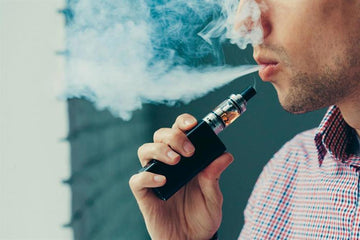Introduction
The rise of vaping has sparked debates and discussions around its safety, accessibility, and impact on public health. Among the various aspects of the vaping industry, disposable vapes have come under increasing scrutiny, leading to bans in various jurisdictions. In this blog, we will delve into the reasons behind the growing movement to ban disposable vapes and explore the potential benefits of such bans for individuals and society as a whole.
- Youth Epidemic
One of the most pressing concerns associated with disposable vapes is their appeal to young individuals, particularly teenagers. The sleek design, fruity flavors, and discreet nature of disposable vapes have contributed to a concerning trend known as the "youth vaping epidemic." This surge in underage vaping has alarmed health officials and policymakers, leading to bans aimed at curbing access to these products and protecting the younger generation from nicotine addiction.
- Nicotine Addiction
Disposable vapes often contain high levels of nicotine, which can lead to addiction, particularly in young and impressionable individuals. Nicotine addiction can have lifelong health implications, affecting brain development, mental health, and overall well-being. By banning disposable vapes, governments aim to mitigate the risk of addiction and prevent a new generation from falling into the trap of nicotine dependence.
- Lack of Regulation
The vaping industry, especially when it comes to disposable vapes, has been marked by a lack of rigorous regulation. This has allowed for the proliferation of products with varying levels of quality and safety standards. Bans on disposable vapes help address this issue by forcing the industry to conform to stricter regulations, ensuring that products meet safety standards and are accurately labeled with their ingredients.
- Environmental Impact
Disposable vapes contribute to the mounting problem of electronic waste. The improper disposal of these products, which often contain batteries and potentially hazardous materials, poses environmental risks. Banning disposable vapes encourages the development of more sustainable vaping alternatives, such as refillable devices with replaceable parts, which can reduce the environmental footprint of vaping.
- Health Concerns
While vaping is often touted as a safer alternative to traditional smoking, emerging research suggests that it is not without health risks. The long-term effects of inhaling vaporized chemicals are still not fully understood, and certain ingredients in disposable vape liquids have raised concerns. By banning disposable vapes, governments seek to protect public health by limiting exposure to potentially harmful substances.
- Gateway to Smoking
Critics argue that disposable vapes can serve as a gateway to traditional cigarette smoking, especially among young users. The appealing flavors and ease of use can normalize the act of inhaling substances, potentially leading users to transition to more harmful tobacco products. Banning disposable vapes can help break this potential gateway and prevent individuals from taking up smoking.
Conclusion
The movement to ban disposable vapes is driven by a combination of concerns related to public health, youth accessibility, environmental impact, and lack of regulation. While vaping was initially hailed as a less harmful alternative to smoking, the proliferation of disposable vapes has raised new and significant challenges. By enacting bans on these products, governments are taking a proactive stance to protect the well-being of their citizens and safeguard future generations from the potential harms associated with vaping. As the discussion continues, the goal is to strike a balance between personal choice and public health in a rapidly evolving landscape.































